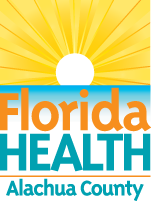Alachua County Monoclonal Antibody Therapy Treatment Site Update
November 09, 2021
Gainesville, Fla. - The State of Florida successfully deployed and expanded state-run, lifesaving monoclonal antibody therapy treatment sites statewide. Throughout this process, the State has worked with a robust network of community partners to ensure the health care sector is equipped to administer monoclonal antibody therapy treatment to Floridians.
To support this transition of monoclonal antibody therapy treatment administration to locally operated providers, the state-supported monoclonal antibody therapy treatment site at Fellowship Church of High Springs, 16916 NW US Hwy 441 in Alachua County, will close on November 12, 2021.
Alternative monoclonal antibody therapy treatment locations in this area are listed below:
The Florida Department of Health will continue to allocate doses of monoclonal antibodies to health care providers with high utilization rates and will ensure inventory levels meet county demand.
Monoclonal Antibody Therapy Treatment Locator:
Monoclonal antibody therapy treatment locations can be found at FloridaHealthCOVID19.gov and by using the National Infusion Center Association's treatment locator.
Benefits of Treatment:
Monoclonal antibodies help the immune system recognize and respond effectively to the COVID-19 virus.
Monoclonal antibody therapy treatment is for individuals who have contracted or been exposed to COVID-19. Monoclonal antibody therapy treatment can prevent severe illness, hospitalization, and death in high-risk patients who have contracted COVID-19. Specifically, it:
- Reduces the risk of death/hospitalization by 70%-85%.
- Reduces the risk of developing symptomatic disease by over 80%.




Connect with DOH